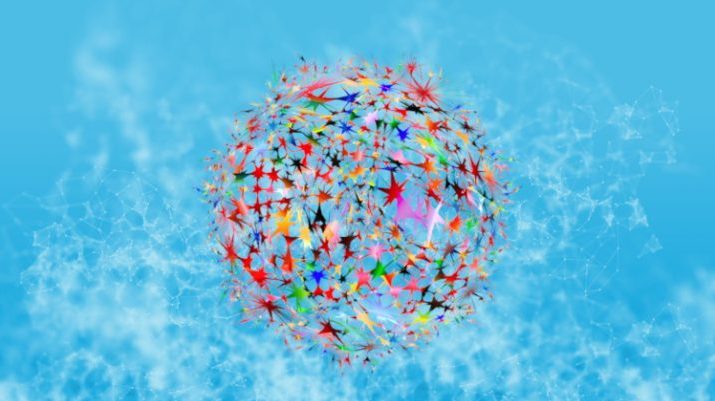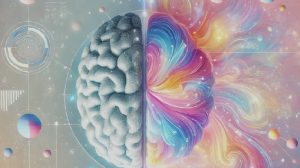Learning new things can have a real and positive impact on brain health. However, acquiring new knowledge and skills can sometimes be challenging. In this article, we’ll explore how the brain learns new things and how to overcome possible difficulties. Also, we’ll try to understand why mastering new skills and experiences has positive effects on brain function, encouraging an adaptable and healthy mind throughout life.
How does the brain learn new things?
Throughout formal education, we are used to perceiving learning things as a long-term endeavour that requires knowledge, aptitudes and resilience. In our competitive society, learning ability is perceived as a path to social success. Usually, obtaining a qualification and a degree is correlated with higher social status and good finances. We acquire knowledge and skills to adjust to our communities’ social and moral norms.
Formal educational systems look more like acquisitions than a natural, gradual development process. The truth is that, as long as life offers us new things to learn, we are all constant learners. We can safely say that learning constanlty new things is a lifetime scope and a challenging journey.
What happens in the brain when we learn new things
The truth is that scientists are still trying to understand what happens in our brains when we are learning. Up to this moment, they discovered that new learning experiences can change the functional circuitry for processing and remembering information.
Neuroscience demonstrated that learning generates “neuroplasticity”. Learning something new creates different neuron connections and pathways in the brain. Over time, it determines their physical structure and connections to change.
Reading a new book, performing new tasks, or playing new music enhances brain connectivity between brain regions. So, when we learn something new, the neurons involved in the learning task will grow and form new connections.
According to research, our brain changes physically whenever we are learning something. Scientific evidence demonstrates changes in the human brain because of experience as opposed to inexperience and learning in sports and music. However, brain structural changes can disappear when practising stops. Overall, it seems that all the learning experiences throughout our lives can change and mould the brain.
Three steps to overcome learning obstacles
Actively pursuing new knowledge and skills can sometimes be challenging. But, no matter our education, age or personal circumstances, when we try to learn new things, we all face obstacles. Although continuous development can enrich our lives and the community we belong to, it also might be difficult.
Maintaining a positive learning mindset during the new skills development process can be difficult. Personal insecurities, lack of motivation or other negative emotions can prevent us from having the confidence to take on a new challenge.
But, as mere humans in our pursuit of success and happiness, we tend to avoid everything that might be difficult to attain. Lack of motivation or other negative emotions can prevent us from having the confidence to immerse ourselves in a new learning challenge. Negative emotions can be obstacles that might prevent us from embracing a new hobby or deciding on a career change.
1. Surpassing the fear of failure
When we decide on a new learning path, the most common learning barrier we stumble upon is the fear of failure. This reaction can be a constant challenge because we usually focus on end results and performance, not the learning process itself. Learning milestones, assessments, and test results can cause concerns about our peers’ reactions because we need their support and appreciation. But what matters for our well-being is to respond to learning challenges with calm, patience and true determination.
Nonetheless, to overcome this fear of failure, we need to understand its causes. According to a study, we manifest this fear mainly through two types of learning behaviours: over-striving and self-protection. Learners who overstretch put a lot of effort into the learning process to avoid failure and successfully attain learning goals.
However, over-striving learners do have an optimistic and proactive attitude. Self-protective learners behave counter productively and pessimistically so they can protect themselves from the possible implications of failure. But both types of learning journeys can be full of anxiety.
Besides, any learning journey can prove to be difficult. We can avoid difficulties by focusing on the actual learning objectives and keeping faith in our initial learning goals. It’s important that along the learning pathway ,to remain confident, take things step by step and be persistent in our efforts.
2. Lowering our expectations of immediate learning rewards
A study concluded that learning a new task is more important for the brain to change its structure than continuing to practice a learned task. So, learning manifests in our brains through the growth of existing synapses and the formation of new synapses. On the contrary, because of a lack of new learning experiences, neural pathways might degenerate.
In adulthood, we choose what we learn, whose advice we take and follow our interests, needs, and personal preferences or our curiosity. However, we need to do one simple thing when picking up something new, and that is to lower our expectations. For instance, taking a new hobby like playing the guitar or piano is time-consuming and lacks immediate reward. It will be wise for us not to expect much performance and quick results from ourselves.
3. Your least comfortable learning style improves your learning skills
Designing instructional experiences according to specific learning styles has been a trend for a while. Each style has a complementary way of acquiring and teaching knowledge and skills. According to learning styles models, most of us learn through a combination of styles and have a predominant style.
Recent research shows that using the learning styles approach doesn’t impact acquisition efficiency; on the contrary. Still, it is useful for everybody to understand their learning style. The learning paths can be easier using the predominant learning style or challenging by using the least comfortable learning style to extend your learning abilities.
Whether we learn to lead a team or to code, the results come with changes and effort to meet goals. Though we understand the formal advantages, expectations will activate our fear of failure. Because of this fear, we stumble upon the actual decision to learn.
Learning new things, a long-term path through life
Depending on each person’s circumstances and traits, several obstacles make learning seem harder than it really is. Resistance to change is one of the main obstacles. Learning resembles a challenge to the personal situation status quo.
The things we are familiar with and easy to do belong to our comfort zone. This zone provides a sense of safety because we can anticipate what can happen and how to solve the tasks we have in front of us. But the world is constantly changing, and as a result, the demand for talent is also adapting. Our current skills may become outdated, so we need to update them and build new abilities based on the skills we already possess.
Constantly learning things is a way to stay relevant in today’s world and cultivate a mindset of personal growth. In this journey, our patience and motivation will be tested, but it will help us get out of our comfort zone. Along the way, we might become more confident in our abilities and even enjoy the experience of gaining new skills and knowledge.





